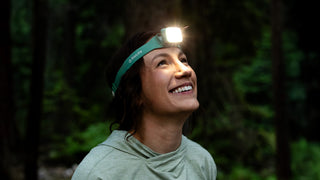Our first short-film is, well, short. Clocking in at just four minutes, it only scratches the surface of Kennedy’s experience as our Lead Field Technician. Below is an expanded interview that goes deeper into his work and why energy is so important to homes everywhere.
Tell us about what you do.
I’m an electrical engineer. Right now I’m deep into the field of solar systems, the kind that helps to power people in places we have no grid electricity – where people are used to using mostly kerosene and wood as their source of fuels.
You do in-home visits as part of the job, right?
Yes, to deliver, install, or service a Solar Home System. I’ll inquire what problem or needs a person is facing and I’ll arrange my tools depending on how I can serve several homes in a day. Some of these places are very remote regions of the country so I take a couple of days to plan before the visit is official – I’ll call the customer to see what they need and go from there.


You talk about a home being more than just a house – so what’s a home visit like as opposed to a house call?
When I visit a home, I will be welcomed by a cup of tea if it’s morning, if it’s lunchtime, maybe a hen… you never know! (laughs). But it’s always beautiful. There’s always a lot of activity and that’s a perfect time to visit a home because that’s when people are around – otherwise it’s just a house with nobody in it. People are the home, that’s the definition for me.
You see they are welcoming you with something, giving you something to eat before doing anything. It’s a very warm welcome in these homes and I feel personally connected to that – I know what it means to these people, it’s an amazing experience for me.

Your connection here isn’t just professional, it’s personal.
I was born in Western Kenya. That’s where I went to nursery school. This is where I lived all my life before going to college. So, coming back here to install these systems, it’s more honorable to me, I feel honored about that.
My time before college, I was in this remote area of the country, with no hope of electricity anytime soon. I thought to myself, I have to do something about this. It’s part of my responsibility, my conviction that I have to give back, but I wanted to do it in a way that I also feel connected. These homes I visit, I always feel like these people are people you know. I can’t find the words to describe that. Access to energy is so important to me because it empowers people with a lot of things.

People talk about “empowerment” a lot in vague terms – what does it mean to you?
Well, for example, kids studying can develop eye problems because of these kerosene lamps – the same small lamps I used to use to study. There’s a family I visited with a boy who used to study with a kerosene lamp and all that. Once they got the Solar Home System you could actually see improvement in his grades and you notice a real change in a couple of months. He gets longer study hours and you can actually gauge the performance – he’s got his standard exams coming up and I think he will do very very well.
In fact, maybe I will be the first one to welcome this kid to college when he comes to Nairobi. I will just say “Welcome to the city, you did great. You have to study hard.”
It's a really important thing because when you see kids from these backgrounds with no electricity like going to school and getting some very nice grades from there you know you feel like this something that will have an impact in the next few years – I’m very proud to be a part of that… I've got a small kid, what can I say.

What does the future of energy look like in Western Kenya?
It’s the small things we do outside here that really matter – we cannot expect a huge gridline to be built overnight so basically it’s a collective responsibility that starts in each home.
Western Kenya has two blessings: one is we have access to sunlight, the sun is very bright all through the day – that gives us free energy, we don’t need any other thing! The second blessing we have is the community; there’s an aspect of togetherness. We are seeing growth in the community to solve these problems together, growing out of waiting for something big to come. Instead, we are now saying we can do this on our own – we can empower ourselves.
With the Solar Home System, once you have it purchased and installed, you don’t pay anyone else. This is you. That is your energy. You have a radio and you have lights in your house – it’s an amazing thing.
The exponential effect of what I’m doing now, of course, people cannot see it clearly in an instant – but I believe in the next few years people will see the impact of all that we are doing right now.
This Giving Tuesday, 100% Of All Sales From The BioLite Shop Will Be Directed to The Kenya Team’s 2018 Operating Budget To Bring Even More Solar Home Systems to Homes in 2018.
To follow Kennedy and the rest of the Kenya Team’s progress, sign up below for our 2018 Impact Newsletter.


